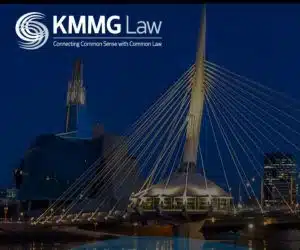Well if you are referee Dennis LaRue you would answer that he did not score a goal last night during the Wings/Stars game. In case you missed the goal/non-goal, here it is:
Now I was watching the game at the gym so I was without sound (which meant I couldn’t hear Ken & Mick declaring it a goal) and I was unable to conclude why the goal was disallowed. From what I had seen, I assumed the whistle had been blown and that was the reason the goal did not count. Hockey blogs and forums were aflame discussing this issue and the overwhelming consensus seemed to be that the referee made a bad call.
The explanation given to Red Wings head coach Mike Babcock was that the ref’s “intent” was for the whistle to have been blown and therefore the goal was to be disallowed. Clearly Coach Babcock didn’t agree as he indicated to the Detroit Free Press after the game:
It wasn’t blown dead. That was a goal. I know what the league said, it’s not reviewable, but … the guy never meant to blow the whistle. It was a shot. It was in on the shot. It’s just dumb as I’ve ever seen.
Now looking to the always fun NHL rule book it has this to say about the subject at hand:
32.2 Disputes – The Referees shall have general supervision of the game and shall have full control of all game officials and players during the game, including stoppages; and in case of any dispute, their decision shall be final.As there is a human factor involved in blowing the whistle to stop play, the Referee may deem the play to be stopped slightly prior to the whistle actually being blown. The fact that the puck may come loose or cross the goal line prior to the sound of the whistle has no bearing if the Referee has ruled that the play had been stopped prior to this happening.
39.1 General Duties – The following are the general duties of the Video Goal Judge:(i) He will review replays of disputed goals when requested to do so by the Referees.
(ii) He will review replays of disputed goals when he observes an incident that was undetected by on-ice officials.
(iii) After viewing the incident he will promptly convey his decision directly to the Referee at the penalty bench. When a play has been referred to the Video Goal Judge, his decision shall be final.
(iv) During the review he may consult with a member of the League’s Hockey Operations or Officiating department staff if latter is in attendance at the game (or via telephone).
39.3 Reports – Following every game, the Video Goal Judge must call the National Hockey League Toronto office and provide a verbal report of all video reviews conducted during the game.Video Goal Judge reports are to be faxed or sent electronically to the National Hockey League Toronto office immediately following the game.
In this particular case what happened is we (in the League’s video replay room in Toronto) see the puck in the net and call the video goal judge and say, ‘Blow the horn and get the referee over here. We see a puck in the net that hasn’t been ruled a goal,’. At that point the referee comes over and we have a discussion. They came to us and said, ‘My intent to blow the whistle was there, I have this play dead before the puck crosses the goal line,’ No more needs to be said. Once we hear that, video review is out of the process. It’s a call made on the ice and it’s a non-reviewable call. It’s a whistle blown by the referee and it was blown or the intent to blow it was before the puck crossed the goal line.
In all cases we want to get the right call. In this case it is clear we didn’t. In some cases when you have video review people expect perfection and that’s never the case. There are times when we don’t want video review to intercede. We don’t want video review refereeing a game.
Do you agree with the League explanation? Sound off in the comments!



